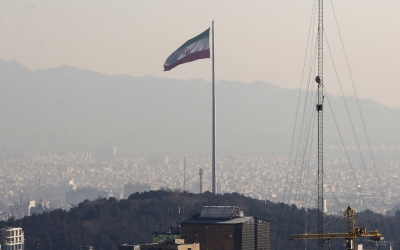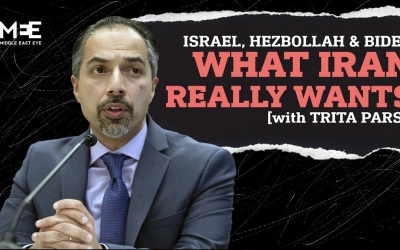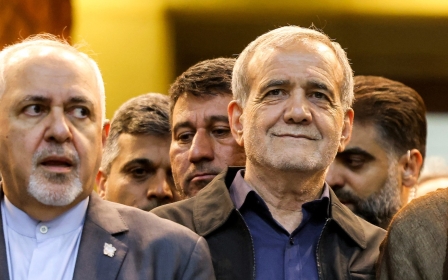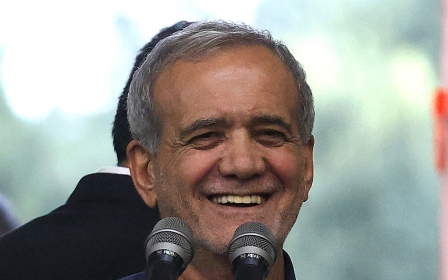Iranian press review: Father of executed protester sentenced to eight years in prison
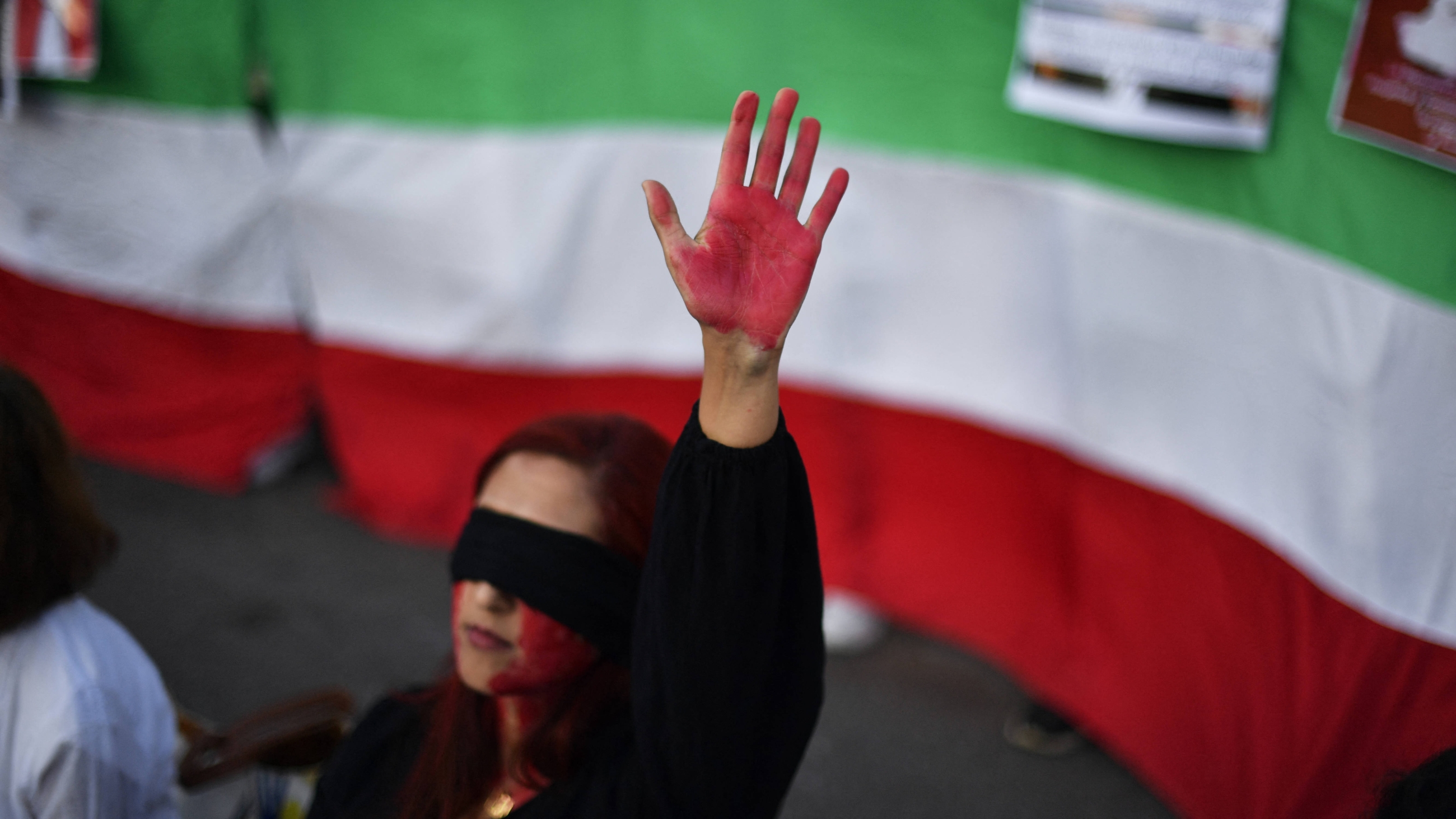
A father’s fight for justice lands him in prison
The father of a protester executed during the 2022 Women, Life, Freedom uprising has been sentenced to eight years and 10 months in prison, a $33,000 fine and the confiscation of his property and car, human rights organisation Hengaw reported.
In August 2023, Mashaallah Karami was sentenced to six years in prison for seeking an explanation for his son Mohammad Mahdi's execution, which took place after he had stood trial without legal representation.
In the most recent verdict against Karami, he was convicted of "accumulation of wealth through illegal means" and "participation in money laundering".
Karami's lawyer, Ali Sharifzadeh Ardakani, had previously clarified that the money and properties in question were donations from the public, intended to support Karami after his son's execution.
New MEE newsletter: Jerusalem Dispatch
Sign up to get the latest insights and analysis on Israel-Palestine, alongside Turkey Unpacked and other MEE newsletters
Human rights activists in Iran believe these charges are an attempt to silence Karami, who has continued to seek justice for his son.
The verdict also ruled that Karami visiting his son's grave was "provocative" and designed to "evoke pity", while his acceptance of public donations was labelled as "exploiting the current situation for personal gain".
Mohammad Mahdi Karami was executed in January 2023 alongside Seyyed Mohammad Hosseini.
‘Patient trading’ in private ambulance services
Local media has revealed a trend known as "patient trading" among private ambulances, whereby patients are transported to certain hospitals in exchange for payments ranging from four to six million Iranian rials (about $68 to $100 on the open market), without the knowledge of the patient’s family.
The issue first came to light through an Instagram post by journalist Ehsan Golmohammadi, who is closely associated with the establishment.
Citing medical specialists, Golmohammadi said, "A specialist revealed that patients are being traded in some ambulances, with the destination hospital determined by the highest bidder."
Subsequent reports in local media highlighted that critically ill patients, who require admission to intensive care units, are being traded at higher prices due to the increased costs associated with specialised departments.
In response to these reports, the head of Tehran Emergency, a government institution, issued a statement denying any violations within its ambulance services.
Authorities shut down Goethe Institute
Police have sealed the German-language Goethe Institute in Tehran and removed its signage, state-affiliated media reported.
"The Goethe Institute, which is affiliated with the German Embassy and located on Dibaji Street in Tehran, was closed by police just minutes earlier," Mehr News Agency reported on Tuesday morning.
No further details were provided by Mehr about the reason for the closure. Instead, the agency referenced last month’s shutdown of the Islamic Centre Hamburg (IZH), leading many to speculate that this was a retaliatory move by the Iranian establishment.
Mizan News Agency, which is linked to Iran's judiciary, confirmed the closure.
"Two branches of illegal centres affiliated with the German government, which had violated the country's laws and committed multiple illegal acts and financial misconduct, have been shut down by judicial order," Mizan said.
Mizan added that investigations were ongoing into other German-affiliated centres within Iran suspected of similar violations.
Nurses go on strike over low salaries
Nurses from hospitals across Mashhad last week joined a nationwide strike to protest against unfavourable working conditions and inadequate salaries.
The wave of protests began in Karaj in July and has since spread throughout Iran, according to Khaneh Parastar, the Iranian nurses’ association.
Mohammad Sharifi Moghadam, secretary general of Khaneh Parastar, attributed the strike to the country's neglect of nurses' needs and difficult working conditions.
He warned that the strike could escalate if their demands continue to be ignored, Khabar Online reported.
"The form of these protests is unprecedented. In the 100-year history of modern nursing in Iran, this is the first time a protest has taken the form of a 'work stoppage'," Khabar Online quoted Sharifi Moghadam as saying.
He pointed out that the current issues facing nurses stem from two decades of the state neglecting their demands, adding that, “the nurses participating in the strike have expressed little fear of losing their jobs”.
Khabar Online reported that the average monthly salary for nurses in Iran is about 120 million rials (about $205), with an additional 200,000 rials (about $0.34) for each hour of overtime.
Sharifi Moghadam also highlighted that the low salaries have led to a significant wave of emigration among Iranian nurses.
Middle East Eye delivers independent and unrivalled coverage and analysis of the Middle East, North Africa and beyond. To learn more about republishing this content and the associated fees, please fill out this form. More about MEE can be found here.


